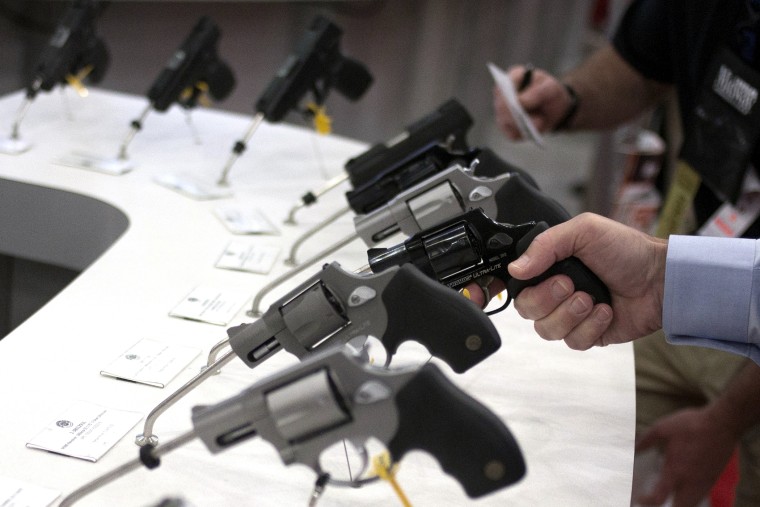In theory, Republican policymakers believe interference in the physician-patient relationship is not only big government, but also an outrageous abuse. Nothing, the GOP has said for years, should come between Americans and their doctors, especially not intrusive government.
But in practices, Republicans have struggled with their own talking points.
When pediatricians ask you about using car seats, they're trying to prevent injuries. When they ask you about how your baby sleeps, they're trying to prevent injuries. When they ask you about using bike helmets, they're trying to prevent injuries. And when they ask you about guns, they're trying to prevent injuries, too. But not, perhaps, everywhere. In Florida, in 2011, a law was signed that made it illegal for doctors to ask patients if they owned a gun. If doctors violate this law, they can be disciplined, leading to fines, citations and even a loss of their license. A lower court struck down the law in 2012. But last week, a panel of judges on the United States Court of Appeals for the 11th Circuit upheld it.
In a 2-1 ruling, the appeals court agreed with Florida's Republican-led legislature that medical professionals have no legitimate reason to ask about a patient's firearms.
It's not up to doctors to make this determination, apparently. Florida's politicians are comfortable placing restrictions as to what physicians can and cannot ask.
Protecting patient privacy is a worthwhile goal, to be sure, but it seems odd that medical professionals trying to identify potential health risks to patients can ask about drugs, alcohol, sexual practices, exercise, tattoos, domestic violence, and even work habits, but mere inquiries about guns are somehow off limits, as if loaded firearms in the home are completely unrelated to health concerns.
TPM's Dylan Scott
talked to Mobeen Rathore, president of the Florida chapter of the American Academy of Pediatrics, who said that questions about guns are standard practice, no different than asking if someone smokes at home.
"The purpose of that is to give anticipatory guidance. You'd be surprised how many people do not know," Rathore said. "If you have children in the home, children are inquisitive. They want to figure out what it is. Unfortunately, there have been many, many, many fatal incidents where a child playing with a gun, didn't know what it was and got killed or hurt." [...] "It is almost a necessity to ask these questions," Rathore told TPM. "Most of us believe if we don't, we are not doing right by our patients."
Since Florida Gov. Rick Scott (R) signed this policy into law a few years ago, 10 other states* have taken up similar measures.
* Update: Those 10 states are Ohio, West Virginia, North Carolina, South Carolina, Tennessee, Alabama, Missouri, Minnesota, Oklahoma, and Kansas. So far, none of those states has passed bills related to the issue, but legislation was introduced in each of them.
